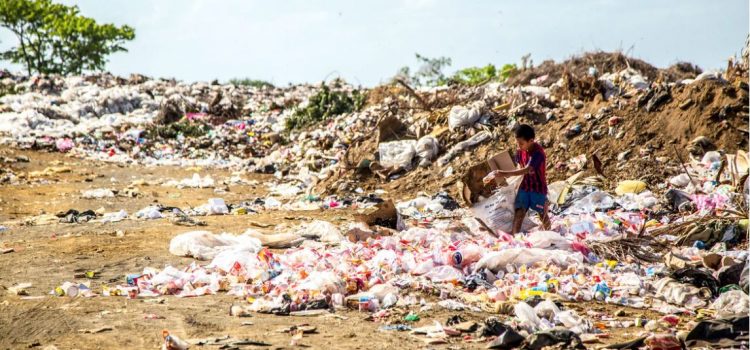

This article is an excerpt from the Shortform book guide to "The Bottom Billion" by Paul Collier. Shortform has the world's best summaries and analyses of books you should be reading.
Like this article? Sign up for a free trial here .
In what ways can poor governance affect a country? Why is it so difficult to reform these countries?
The effects of poor governance can be seen on many fronts—corruption and poverty being the most prominent. The obvious solution would be to reform the governments of these countries, but it’s not that easy.
Here’s why poor governance can be detrimental to a nation.
Poor Governance and Failed States
As the final trap, Collier identifies poor governance as a problem that reinforces poverty and low growth. The effects of poor governance hinder economic growth or even lead to ruin.
Corruption
Due to corruption, many of the poorest countries in the world have leaders who are among the richest people in the world. For example, the daughter of Angola’s president is a billionaire despite the fact that half of Angolans earn less than $2 a day.
(Shortform note: According to Transparency International’s Corruption Perception Index, the three most corrupt nations are South Sudan, Syria, and Somalia. Together, they have an average GDP per capita income of just $964.)
| The Mix of Petrodollars and Corruption In Crude World: The Violent Twilight of Oil, journalist Peter Maass examines the interplay of oil money and corrupt governments in a handful of countries, including the tiny African nation of Equatorial Guinea. His findings reveal how brazen much of the malfeasance is. In 1994, Equatorial Guinea had a GDP per capita of $210. But following its discovery of oil reserves in the mid-1990s, GDP per capita ballooned to nearly $23,000 by 2008. Nearly all of the new wealth went straight into government coffers, however, and very little reached regular citizens. As of 2006, 75% of the country still lived in poverty. So, what did Equatorial Guinea’s leaders buy with the windfall? Federal prosecutors in America have some clues. In 2014, the US Justice Department reached a settlement agreement with the son of Equatorial Guinea’s president, Teodoro Obiang, relating to more than $30 million of embezzled assets. Per the agreement, the US government seized a Malibu mansion, a Ferrari, and a collection of Michael Jackson memorabilia. In return, Obiang was allowed to keep suspicious assets outside of the US, including a private jet and one of Jackson’s diamond-encrusted white gloves. This kind of lavish spending is common among oil-exporting countries like Russia, Saudi Arabia, and Nigeria. |
Why Change Is So Hard
Collier notes that many good people try their best to achieve reform, but are often overpowered by vested interests. For example, in the bottom billion nations, dictators often replace honest civil servants with people who are willing to do their personal bidding. Collier argues that this is why the bottom billion need outside assistance.
75% of the bottom billion live in nations that have at some point been categorized as a failing state.
(Shortform note: Collier neglects to define “failing state,” except to say that they scored extremely low for at least four straight years on a Brookings Institute index that ranks 20 components of governance and policy.)
| Attempts at Reform in Kenya In It’s Our Turn to Eat, journalist Michela Wrong recounts the efforts of Kenya’s former anti-corruption czar John Githongo to clean up malfeasance in the African nation. The story illuminates the price that many reformers pay for trying to fight corruption in their home countries. In Kenya, corruption runs deep. The average citizen pays 16 bribes a month to government officials—the price of doing business in a bottom billion country. To turn things around, Githongo set his sights on Anglo Leasing and Finance Company LLC, which received 16% of the Kenyan government’s expenses. As it turned out, Anglo Leasing was a shell company used to line the pockets of government officials and their cronies. For his efforts to expose this corruption, Githongo was forced into exile in Britain. In Kenya and many other bottom billion countries, whistle-blowing is considered an act of treason. |
The power of vested interests and the status quo substantially reduce the probability of failed states correcting course. According to Collier’s statistical analysis, the likelihood of a failed state having a sustained turnaround in a given year is only 1.6%. The average failing state stays in this category for 59 years.
(Shortform note: Although building better institutions is difficult, it is more feasible than changing a nation’s geography or culture. While overturning the status quo in failed states rarely happens, Why Nations Fail provides a blueprint for the institutional design that allows nations to develop. The authors argue that “inclusive institutions” are what separates economic development in rich and poor countries.)

———End of Preview———
Like what you just read? Read the rest of the world's best book summary and analysis of Paul Collier's "The Bottom Billion" at Shortform .
Here's what you'll find in our full The Bottom Billion summary :
- How development aid programs pay too little attention to struggling countries
- A look at the four poverty traps, and the four remedies for them
- How conditions for the bottom billion are changing






